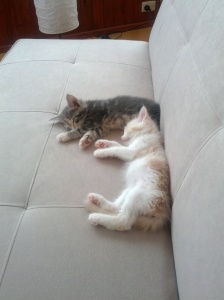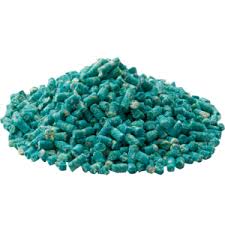Hi, my name is Neal & I’m the loving partner of the wonderful lady who set up thepetloverbox (www.thepetloverstore.com). I also happen to be a veterinarian who works with many dogs, cats, mice, rabbits, birds, reptiles & the occasional wildlife. In this post I’m going to talk about common things in the household that could be deleterious for your cat.

So how does curiosity actually kills the cat? Let’s focus on a few areas in the house:
1. Over-the-counter drugs – Aspirin, Ibuprofen (anti-inflammatory drugs)
2. Kitchen – Chocolate, caffeine, grapes, raisins, onions, garlic.
3. Decor – Lily plant/flower
4. Living area – Batteries; Lead & Zinc.
5. Garden – Pesticides (snail baits, rodenticides) & Herbicides
6. Garage – Anti-freeze (Ethylene glycol)
DRUGS –

Every household will have a stash of over-the-counter drugs such as aspirin or your non-steroidal anti-inflammatories such as ibuprofen; just in case we needed a few tablets to get through the day. The tablets often come in a neat aluminium foil packaging which may appeal to the curious cat. These drugs are safe for use in humans but NOT in cats – they result in acute kidney failure and must be brought to veterinary attention ASAP.
KITCHEN –
Cats love the smell of chocolate. In fact, chocolate contain theobromine which falls under the same category as caffeine – both of which are toxic to cats. Clinical signs occur one to four hours after ingestion include vomiting, diarrhoea, tremors, hyperexcitibility, seizures or even death.
Grapes or raisins are toxic to the kidneys so avoid access to cats at all cost!
DECOR –
Remember that bouquet of flowers you get for your birthday or even for some occasion that you might not even remember? Well, just remember that although Lilies are extremely pretty to look at, they are not so when you involve a cat. Every part of the Lily (yes including the stem & leaves) is toxic and will cause acute kidney failure; at the very least!
LIVING AREA –
Don’t even think about it. Let’s leave batteries out of the equation. We don’t eat batteries so keep them in drawers or cabinets where cats cannot have access to!
GARDEN –
Secure all pesticides or herbicides in a designated locked up area. Dogs are the most common casualties of snail baits (because they taste good & dogs don’t always think before they act) but occasionally cats can be implicated too! Most snail baits or rodenticides are designed to cause a blood clotting disorder in rodents and therefore they will react in the same manner in cats & dogs. Beware of the dead rodent as the rodenticide can still be active for some time after.
Most common symptoms will include vomiting, diarrhoea, tremors, incoordination, wobbly walking & abnormal neurological signs. Veterinary intervention is absolutely critical & time is of an essence here.
GARAGE –
Anti-freeze or Ethylene Glycol, commonly used for cars in the northern hemisphere during winter. Being a subsidiary of an alcohol, it is no doubt sweet tasting & animals loved it. Using anti-freeze? Put the cap back on after use or you’ll end up with a few thousand dollars of veterinary bills.
That’s all from me today & I hope you find this information useful.





